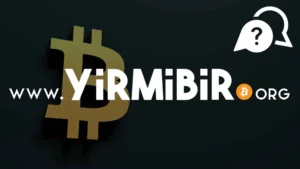Turkey has been a preferable destination for foreign investors who wanted an overseas house for years. Especially, since the decrease of investment thresholds, many investors preferred to purchase a property in Turkey, to apply for citizenship. By time, some owners decided to jump into Turkish rental market. They rented the properties out, in order to start making profit from their investments. Likewise, some investors preferred properties that already have tenants inside.
Diving into a rental market in Turkey might seem like a profitable option, but knowing your rights as a landlord is a must. To begin with, you have to be aware of the periods and increase rate in your lease agreement as landlord. Because Turkish rental market is in favor of the tenant, due to the legal system.
In this article we’ll briefly explain the termination of the lease agreement and must knows of the rental market. When can a landlord terminate the lease agreement? How to kick out an unpaying tenant? Is there a maximum increase rate for rent amount? Keep reading for more!
TERMINATION OF THE LEASE AGREEMENT
For the lease agreement of houses, there are several options and procedures to be followed. We are listing them as brief as possible below, according to possible scenarios.
1. If tenant does not pays rent properly/regularly
Enforcement procedure
Landlord can start enforcement procedure to collect the due rent debts with an eviction request. To clarify, enforcement offices run the official debt collection services. Procedure starts with an “order of payment” send via enforcement office. This order gives 30 days to the tenant to pay, or to object to the debt within 7 days. Moreover, it informs the tenant that otherwise landlord will terminate the lease agreement at the end of 30 days.
If tenant objects within 7 days;
Landlord has to file a lawsuit for the cancellation of the objection within 6 months. In this case, court only checks if the due debt is paid within 30 days or not.
- If tenant pays, objection becomes definite and enforcement procedure stops. That is to say, tenant keeps using the property legally.
- If tenant does not pays within 30 days, court decides on cancelation of the objection. In other words, landlord can continue with the enforcement process and evict the tenant. However, landlord has to file a new lawsuit to evict the tenant, at the end of 30 days.
If tenant does not objects within 7 days:
Tenant has 30 days to pay the due debt. If tenant does not pays the rent within 30 days, landlord can file a lawsuit for the eviction. Court can decide on eviction within 6 months. Following the eviction decision, if tenant does not leave, landlord can re-apply to the enforcement office to physically evacuate the tenant.
2. Eviction due to two legal notices
This option is regardless of the fact if the tenant has paid the debt after receiving the notices or not. In other words, the only important point is sending two separate notices for due debts. To clarify, landlord can file for eviction, if tenant causes two separate legal notices, within a lease year.
This lawsuit can be filed within the following 1 month as of the end of such lease year. This notice can either be the “order of payment” from the enforcement office, or a legal notice sent via notary.
3. In case tenant pays the rent properly, but you still want to terminate the lease
Landlord can not terminate the agreement for 10 years as of the signing day of the agreement. After 10 years have passed, landlord can terminate the agreement at the end of 11th year. However, this is only possible by sending a 3 months prior written notice to the tenant.
Of course there are still some options for the landlord to evacuate the property. Nevertheless, please note that these options are relatively harder and takes more time.
For the personal need of the new owner:
If you have purchased a property with an existing tenant, you automatically become a party to the existing lease agreement. However, new owner can file a lawsuit for eviction in 6 months. Yet, this is only possible if new owner notifies the tenant about the personal need within 1 month after purchase. As a result, landlord has to act fast, as if he/she does not follow the time limits he/she can not evict the tenant that easily.
For the personal need of the owner:
Landlord can file a lawsuit for eviction at the end of the lease year. However, landlord can’t rent the property to another tenant within 3 years afterwards. Because in case of eviction due to personal need, this “need” must be sincere and real.
PROCEDURE AFTER COURT’S EVICTION ORDER
In any case, court’s eviction order doesn’t automatically empty the property. In other words, court’s order must be enforced. This is when the enforcement office enters into the stage again. Upon landlord’s demand, enforcement officer visits the property and warns the tenant to evacuate the property within 15 days. If tenant does not evict within 15 days, eviction process is carried out by force, with presence of police officers.
UPDATING THE RENT
Tenant and the landlord can freely decide on the rent at the beginning of a lease agreement. During the negotiations, parties can also decide on the increase rate of the rent. However, this amount can’t be more than 12 months average rate of the consumer price index (“TUFE” in Turkish). The Turkish Statistical Institute (“TUIK” in Turkish) announces this rate every month.
CONCLUSION
In conclusion, since the Turkish Rental Law is in favor of the tenant, choosing the right tenant becomes more important. Therefore, we suggest you to work with competent real estate agents who provide proper property management services.
Above all, consult a trusted attorney before taking an action. Because Turkish Rental Law changes according to scenerios. Timeline and procedure explained in this article only covers the Turkish Rental Law provisions for houses. Therefore, it is always better to get individual solution!

Related Videos
Related Articles
We are always happy to hear from you!
E-mail:
info@turkfortune.com
Phone:
+90(546) 577 73 18
Addresses:
Büyükdere Cad, Mecidiyeköy Mah. No:81 Kuğu İş Merkezi Floor:4 No:7, Şişli/İSTANBUL
Mansuroğlu Mah. 286/1 Sk. No:1 Floor: 2 Office: 217 Bayraklı/İZMİR


















